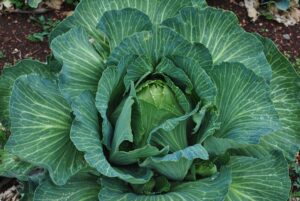Organic gardening isn’t just a trend – it’s a return to the fundamental principles of working with nature. Let’s dive into the world of organic gardening and discover why it’s capturing the hearts (and green thumbs) of gardeners worldwide!
Definition and Principles of Organic Gardening
Organic gardening is a method of growing plants without the use of synthetic fertilizers, pesticides, or other artificial chemicals. Instead, it relies on natural processes and materials to nourish plants and manage pests. The core principles include:
- Soil Health: Organic gardeners focus on building and maintaining healthy, living soil through practices such as composting, crop rotation, and the use of natural amendments. By enriching the soil with organic matter, they enhance its fertility and structure, promoting robust plant growth. Crop rotation helps to prevent soil depletion and reduce the risk of pests and diseases, while natural amendments like bone meal, fish emulsion, and green manure boost nutrient levels without harmful chemicals. These sustainable strategies contribute to a thriving garden ecosystem and healthier, more resilient plants.
- Biodiversity: Encouraging a diverse ecosystem in the garden helps maintain balance and natural pest control. By planting a variety of flowers, herbs, and vegetables, you attract beneficial insects and birds that keep harmful pests in check. This not only promotes healthier plants but also reduces the need for chemical pesticides, creating a more sustainable and vibrant garden environment.
- Water Conservation: Efficient watering techniques, such as drip irrigation and timed sprinklers, and the use of mulching with organic materials like straw or wood chips, are employed to conserve water and maintain soil moisture in gardens and agricultural fields. These methods not only reduce water usage but also help to improve plant health and productivity.
- Natural Pest Management: Instead of synthetic pesticides, organic gardeners use companion planting, beneficial insects, and natural deterrents to manage pests. Companion planting involves growing certain plants together to repel pests or attract beneficial insects. Beneficial insects, like ladybugs and lacewings, naturally keep pest populations in check. Natural deterrents, such as neem oil and diatomaceous earth, provide eco-friendly alternatives to harsh chemicals, ensuring a healthier garden ecosystem.
- Sustainable Practices: Organic gardening emphasizes sustainability and often incorporates practices like seed saving and recycling garden waste. By using natural fertilizers and avoiding synthetic chemicals, organic gardeners work to create a healthy, balanced ecosystem. These methods not only support plant health but also foster soil vitality and biodiversity, promoting long-term environmental stewardship.
Benefits of Organic Gardening for Health and Environment
The advantages of organic gardening extend far beyond your backyard:
Health Benefits:
- Produce free from synthetic pesticide residues, ensuring healthier and safer consumption for you and your family. This means you can enjoy fresh fruits and vegetables without worrying about harmful chemicals, promoting overall well-being and peace of mind.
- Higher nutrient content in organically grown foods, which often leads to better overall health and wellness for those who consume them. These foods tend to have more vitamins, minerals, and antioxidants, contributing to improved immune function, reduced risk of chronic diseases, and enhanced overall vitality.
- Engaging in gardening activities provides both physical exercise and stress relief, making it a beneficial hobby for overall well-being. It helps improve strength, flexibility, and endurance while also offering a therapeutic escape from daily stressors.
Environmental Benefits:
- Reduced pollution from synthetic chemicals, leading to a cleaner environment and healthier ecosystems
- Improved soil health and structure, leading to better water retention, enhanced nutrient cycling, and increased resilience against erosion.
- Increased biodiversity, providing crucial habitats and food sources for pollinators and wildlife, thereby enhancing the overall health of ecosystems.
- Lower carbon footprint due to reduced reliance on manufactured inputs, resulting in fewer emissions and less environmental impact.
Economic Benefits:
- Savings on grocery bills can significantly reduce monthly expenses, allowing you to allocate funds to other important areas.
- Potential for selling excess produce to local markets or community members
- Reduced long-term costs as soil health improves, leading to better crop yields and reduced need for chemical fertilizers.
Common Misconceptions about Organic Methods
Let’s bust some myths about organic gardening:
- “Organic gardening is too difficult”: While it requires learning, organic gardening can be just as manageable as conventional methods once you understand the principles.
- “Organic gardens are less productive”: With proper soil management, organic gardens can be just as productive – if not more so – than conventional gardens.
- “Organic produce always has bug damage”: While some cosmetic imperfections may occur, proper management can result in beautiful, unblemished produce.
- “Organic gardening is more expensive”: Initial costs might be higher, but long-term expenses are often lower due to reduced need for inputs.
- “Organic methods don’t work for pest control”: Natural pest control can be highly effective when implemented correctly.
Essential Tools and Materials for Organic Gardeners
To get started with organic gardening, you’ll need:
- Tools:
-
- Hand trowel and fork
- Garden spade and fork
- Pruning shears
- Watering can or hose with adjustable nozzle
- Wheelbarrow or garden cart
- Materials:
-
- Compost bin or tumbler
- Organic seeds or seedlings
- Natural mulch (straw, wood chips, leaves)
- Organic fertilizers (compost, worm castings, bone meal, blood meal)
- Natural pest control products (neem oil, diatomaceous earth)
- Soil Amendments:
-
- Compost
- Aged manure
- Rock dust or greensand
- Organic peat moss or coconut coir
- Protection:
-
- Row covers or floating row fabric
- Organic garden twine
- Natural stakes or trellises
Remember, organic gardening is a journey of continuous learning and adaptation. As you develop your green thumb, you’ll discover which techniques work best in your unique garden ecosystem. Embrace the process, and soon you’ll be reaping the rewards of your very own organic oasis!

